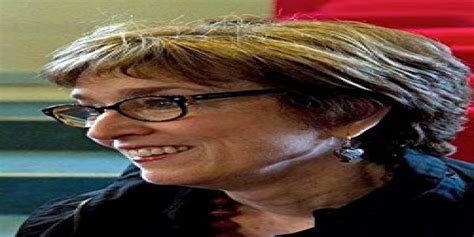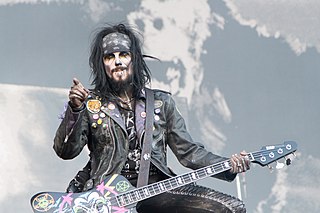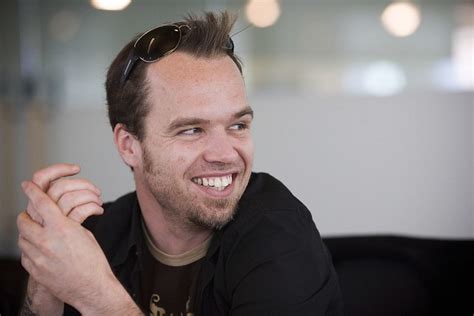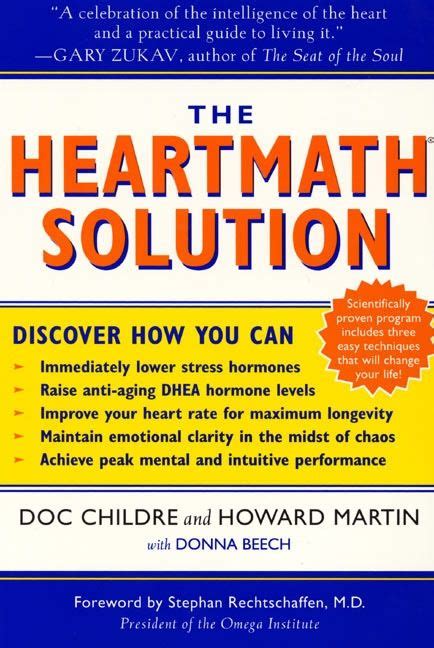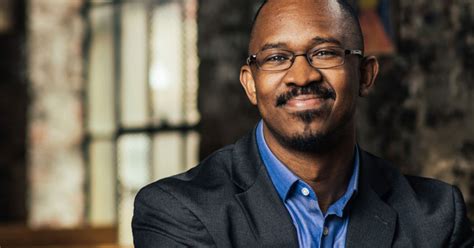Top 506 Perspectives Quotes & Sayings - Page 9
Explore popular Perspectives quotes.
Last updated on April 20, 2025.
Consider the many special delights a lawn affords: soft mattress for a creeping baby; worm hatchery for a robin; croquet or badminton court; baseball diamond; restful green perspectives leading the eye to a background of flower beds, shrubs, or hedge; green shadows - "This lawn, a carpet all alive/With shadows flung from leaves' - as changing and as spellbinding as the waves of the sea, whether flecked with sunlight under trees of light foliage, like elm and locust, or deep, dark, solid shade, moving slowly as the tide, under maple and oak. This carpet!
That's really the essence of what any fiction writer does. Some of it is research-based, but most of it is a really long-term, imaginative, empathetic effort to see the world the way someone whose experiences remote from yours might see it. Not every writer works that way; some writers make a wonderful career out of writing books that adhere very closely to how they view the world. The further I go with this, the more interested I get in trying to imagine my way into other perspectives that at first seem foreign to me.
Inform yourself about animal issues, and listen to different perspectives on how to help animals. Don't latch onto the first opinion that you hear about what is the most urgent issue, or the best way to help animals. Read everything you can on the issues, and be critical when presented with facts. Take an honest look at what your talents, strengths, and passions are, and determine how they can be used to the greatest effect. Once you've informed yourself, do your own thinking. The best way for you to make a difference might not be obvious, and might be something that no one has thought of yet.
Paul Davies takes us on a logically and rhetorically compelling modern search for human agency. This outstanding analysis, well informed by naturalistic views of our evolved affective nature, is the kind of philosophical work that is essential for a field to move forward when ever-increasing findings from modern science are inconsistent with traditional philosophical arguments. This book is for all who wish to immerse themselves in the modern search for free will. It is steeped in the rich liqueur of current scientific and philosophical perspectives and delusions.
The intuitive mind is a sacred gift and the rational mind is a faithful servant. We have created a society that honors the servant and has forgotten the gift. We will not solve the problems of the world from the same level of thinking we were at when we created them. More than anything else, this new century demands new thinking: We must change our materially based analyses of the world around us to include broader, more multidimensional perspectives.
The real controversy comes with anthropologists - not all, but some - who see themselves as studying culture, and they then see culture from the perspective of humans, which is what they study. From their perspective, or, from some of their perspectives, it's sort of heresy to even talk about culture in any other animal. Others would say, "Yeah, you can talk about it, but our definitions of culture are so utterly different from yours and include things like values, and so on, which you've never shown to exist in any of these other creatures."
Talking Taboo is a groundbreaking book. This chorus of bold female voices is presenting the church with an opportunity to engage real but all too frequently avoided or unseen issues impacting countless Christian women today. Their candid essays cover a wide spectrum of perspectives. Readers will resonate with some and be shocked by others. Talking Taboo took courage to write. Reading taboo takes courage too. So buckle up and brace yourself for an eye-opening but vitally important read!
The facts of nature are what they are, but we can only view them through the spectacles of our mind. Our mind works largely by metaphor and comparison, not always (or often) by relentless logic. When we are caught in conceptual traps, the best exit is often a change in metaphor not because the new guideline will be truer to nature (for neither the old nor the new metaphor lies "out there" in the woods), but because we need a shift to more fruitful perspectives, and metaphor is often the best agent of conceptual transition.
I used to be the guy who wanted to do everything myself, wanted to write and play everything myself, but the older I've gotten, the more collaborations I've gotten. I really enjoy working with other people to create different styles of music, because I really do listen to everything, and I enjoy every kind of music. I think some of the best stuff comes from working with people who have different perspectives on the same thing.
The reality is the only place a company's culture is going to start and end is at the beginning of that company. And it always starts with the founders. So if you can't create an environment of founders and founding employees who are going to represent the company you want, then you are never going to get there. You have to look at your own network and find what you are missing. So if you don't have a female or someone who has an international perspective or a person with a bio degree, but those perspectives matter to the firm or product you want to create, then it's never going to work out.
In a world in which we are exposed to more information, more options, more philosophies, more perspectives than ever before, in which we must choose the values by which we will live (rather than unquestioningly follow some tradition for no better reason than that our own parents did), we need to be willing to stand on our own judgment and trust our own intelligence-to look at the world through our own eyes-to chart our course and think through how to achieve the future we want, to commit ourselves to continuous questioning and learning-to be, in a word, self-responsible.
My greatest passion has always been connecting with creative people, appreciating the artistic and discovering fresh perspectives on the world. I came on board to use my experience in building an international community of photographers, illustrators and video artists at iStockphoto who learned, grew and sold their work to millions around the world. Building a community that large requires personality, a keen sense of what both the contributing artists and the buying audience need, and an ability to balance both. I wanted very much to transfer those skills to the fine art world.
Art is interesting because there can be so many different perspectives in a piece of art. The way I see it may be completely different than the way somebody else sees it. It's interesting to hear what somebody sees in a piece of art compared to somebody else. It could be completely different, and that's interesting to me.
The law of love and compassion for all living creatures is again a doctrine to which we are all too ready to pay slip service. However, if it is to become a reality, it requires a process of education, a veritable mental renaissance. Once it has become a reality, national as well as international problems will fall into perspectives and become easier to solve. Wars and conflicts, too, will then become a thing of the past, because wars begin in the minds of men, and in those minds love and compassion would have built the defenses of peace.
If someone were to ask whether communications skills or meekness is most important to a marriage, I'd answer meekness, hands down. You can be a superb communicator but still never have the humility to ask, 'Is it I?' Communication skills are no substitute for Christlike attributes. As Dr. Douglas Brinley has observed, 'Without theological perspectives, secular exercises designed to improve our relationship and our communication skills (the common tools of counselors and marriage books) will never work any permanent change in one's heart: they simply develop more clever and skilled fighters!
What you put out comes back. The more you sincerely appreciate life from the heart, the more the magnetic energy of appreciation attracts fulfilling life experiences to you, both personally and professionally. Learning how to appreciate more consistently offers many benefits and applications. Appreciation is an easy heart frequency to activate and it can help shift your perspectives quickly. Learning how to appreciate both pleasant and even seemingly unpleasant experiences is a key to increased fulfillment.
Man preys on man; and you mourn for the idle tapestry that decorated a gothic pillar, and the dronish bell that summoned the fat priest to prayer. You mourn for the empty pageant of a name, when slavery flaps her wing, ... Why is our fancy to be appalled by terrific perspectives of a hell beyond the grave? - Hell stalks abroad; - the lash resounds on the slave's naked sides; and the sick wretch, who can no longer earn the sour bread of unremitting labour, steals to a ditch to bid the world a long good night.
All cities are geological; you cannot take three steps without encountering ghosts bearing all the prestige of their legends. We move within a closed landscape whose landmarks constantly draw us toward the past. Certain shifting angles, certain receding perspectives, allow us to glimpse original conceptions of space, but this vision remains fragmentary. It must be sought in the magical locales of fairy tales and surrealist writings: castles, endless walls, little forgotten bars, mammoth caverns, casino mirrors.
Even when alternative views are clearly wrong, being exposed to them still expands our creative potential. In a way, the power of dissent is the power of surprise. After hearing someone shout out an errant answer, we work to understand it, which causes us to reassess our initial assumptions and try out new perspectives. “Authentic dissent can be difficult, but it’s always invigorating,” Nemeth says. “It wakes us right up.”
The format of the book was the idea of my wonderful editor, Stephen Segal. Stephen and I had worked together before, on projects for the Interstitial Arts Foundation, and when he got the idea for an accordion-style book, he called and asked if I could write the story for it. I told him that I would love to try! And I knew it had to be a love story, because that's the sort of story you really want to hear from both perspectives. I mean, imagine if Pride and Prejudice were told from Darcy's perspective as well as Elizabeth's. It would be quite a different story!
You think when someone you love passes away, everything becomes clearer, that your priorities and perspectives align in a way they've never aligned before because of the sobriety of it all. But it doesn't. Those revelations just become skewed and distorted until you're forced to rewrite them entirely. You can't walk straight on a new path when you have too much luggage on your back. You just keep swerving, trying to find a way to accommodate the weight, but it's all dead and you know it's going to take you down. The only answer is to reroute.-Emma
My own view - and I'm very open to hearing other perspectives - is that this movement-building needs to begin at home, in local communities. It isn't about trying to launch a brand new national party overnight. It's about people in communities coming together across lines of difference, bringing with them their movements, their families, and coming together and saying, "How can we together build a movement of movements here at home? What would that look like? What do we want to do right here in our communities?"
There have been a number of philosophers who have reveled in the dismantling of truth. I think they did so with good ethical motives, and for good philosophical reasons. I can see the sense in what they were talking about; the idea that truth is often claimed by elites in order to further certain agendas. They crowd-out alternative perspectives - particularly those of the powerless. But the undermining of truth contributed - in the weird, indirect way that philosophy contributes to the culture - to a rejection of the idea of truth as having any kind of proper meaning at all.
To the designer, great design is beautiful design. A significant amount of effort must be placed into making the product attractive. To the client, great design is effective. It must bring in customers and meet the goals put forth to the designer in the original brief. To the user, great design is functional. It’s easy to read, easy to use and easy to get out of it what was promised Truly great design, then, is when these three perspectives are considered and implemented equally to create a final product that is beautiful, effective and functional.
Embedded in every technology there is a powerful idea, sometimes two or three powerful ideas. Like language itself, a technology predisposes us to favor and value certain perspectives and accomplishments and to subordinate others. Every technology has a philosophy, which is given expression in how the technology makes people use their minds, in how it codifies the world, in which of our senses it amplifies, in which of our emotional and intellectual tendencies it disregards.






